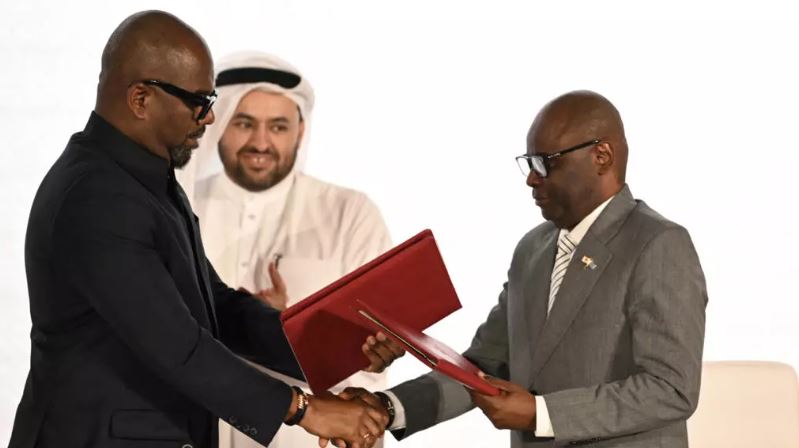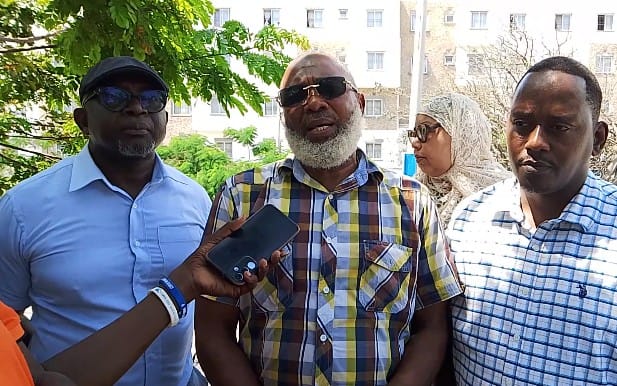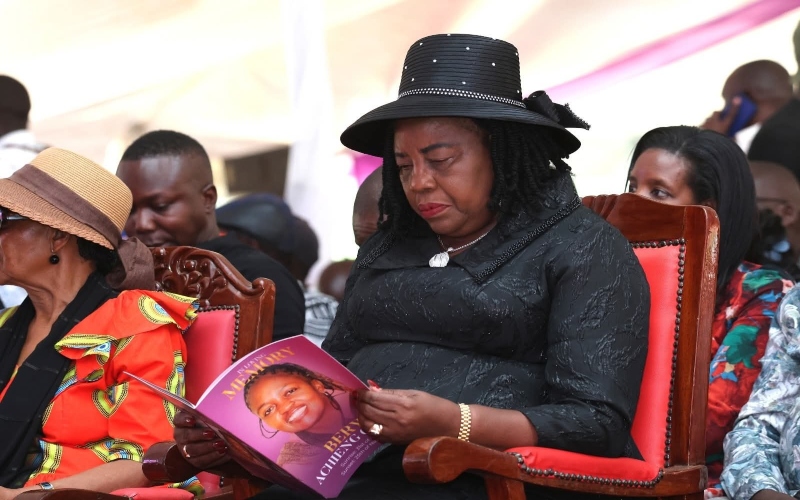DR Congo, M23 commit to ceasefire and humanitarian protocols with new peace deal

The agreement, backed by Qatar and the United States, sets out eight implementation protocols, including ceasefire monitoring and prisoner exchanges and lays the groundwork for restoring state authority and facilitating the return of displaced populations.
The Democratic Republic of the Congo (DRC) and the M23 rebel group have signed a peace framework agreement in a move aimed at ending years of deadly fighting and paving the way for humanitarian relief.
The agreement, backed by Qatar and the United States, sets out eight implementation protocols, including ceasefire monitoring and prisoner exchanges and lays the groundwork for restoring state authority and facilitating the return of displaced populations.
More To Read
- DRC and M23 rebels sign Doha Peace Framework in bid to end conflict
- M23 accuses DRC Government of attacks hours after Doha ceasefire monitoring deal
- DRC Government, M23 ink deal to establish mechanism for monitoring potential permanent ceasefire
- Congo: Are M23 rebels really advancing toward Kinshasa?
- Over 80 per cent of health facilities in Eastern DRC left without humanitarian support, ICRC warns
- DR Congo crisis: Funding cuts curtail assistance to victims of violence
Qatar’s Minister of State for Foreign Affairs, Mohammed bin Abdulaziz Al-Khulaifi, said the agreement “enhances the process to find peaceful solutions through dialogue and understanding” to restore calm in the region.
He added that both sides had made progress on several critical issues, building on previous agreements signed in recent months.
The framework includes eight implementation protocols, two of which have already been signed, covering ceasefire monitoring and prisoner exchanges. The remaining six protocols, expected to be finalised in the coming weeks, will address timelines, humanitarian aid access, refugee and internally displaced persons’ returns, restoration of state authority, economic reforms, reintegration of armed groups, and the removal of foreign militias.
“Peace cannot be enforced by force, but is built through confidence, mutual respect and sincere commitment,” Mohammed said, highlighting the broader goal of national reconciliation.
An independent committee will oversee the peace process and provide recommendations for compensation in line with the DRC’s constitution.
US envoy Massad Boulos, representing President Donald Trump’s administration, thanked Qatar, the African Union and Togo for facilitating the talks. He described the framework as a “launching pad” for an eventual comprehensive peace deal.
“People were expecting some immediate results on the ground, but this is a process, this is not a light switch that you can turn on and off, and there are many angles to it,” Boulos said.
The new framework builds on prior agreements, including a ceasefire deal in July in Doha and a separate peace accord between the Congolese and Rwandan governments signed in Washington in June. Despite these efforts, violence has persisted, with thousands killed and hundreds of thousands displaced since M23 resumed fighting in late 2021, seizing key provincial capitals including Goma and Bukavu.
Boulos emphasised that while the framework covers all eight protocols, work remains to finalise six of them. He acknowledged that implementing the first two protocols on prisoner exchanges and ceasefire monitoring had been slow.
“Yes, they were a little bit slow in the first few weeks. This is a process, not a light switch that you just switch on and off,” he said.
The conflict in eastern DRC continues to escalate, with recent reports of 28 civilians killed by Islamic State-aligned militants in North Kivu province. Since January, M23 fighters have captured large swathes of territory across North and South Kivu provinces, intensifying fears of a broader regional conflict.
The Doha framework represents a critical step in US and Qatar-backed diplomatic efforts to end decades of fighting in the DRC, though observers caution that sustained progress on the ground will require careful implementation of all protocols and ongoing dialogue between the warring parties.
Top Stories Today
















































